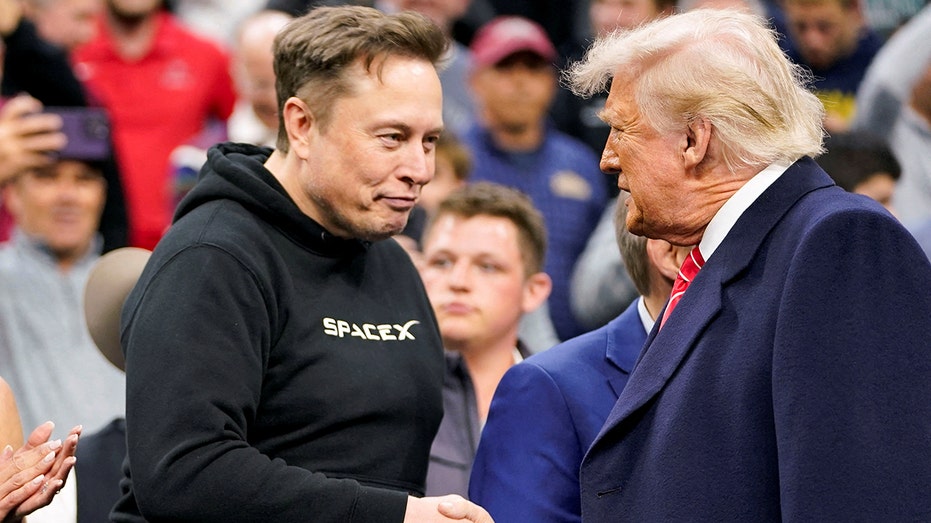Elon Musk's Conservative Shift Creates Rift with Trump Over Key Legislation in 'Kill Bill' Era
Tech mogul Elon Musk pivots to the political right, endorsing Trump and clashing with current leadership on legislation.

In a dramatic turn on the national political stage, tech billionaire and former Department of Government Efficiency (DOGE) chief Elon Musk has moved sharply to the right, emerging as a vocal critic of the very administration with which he recently allied himself. After earning acclaim from conservatives for his aggressive efforts to eliminate government waste, fraud, and abuse during his 130-day stint at DOGE, Musk is now publicly challenging President Donald Trump’s signature legislative push—the “One Big Beautiful Bill Act.”
This sweeping piece of legislation, heralded by President Trump as a critical step toward tax relief and stricter border control, is facing mounting resistance from fiscal hawks within the Republican party. Musk’s opposition has become the focal point of this intra-party rift. Just days after his departure from federal service, Musk unleashed a flurry of posts on X, denouncing the bill as “massive, outrageous, pork-filled” and calling on Americans to pressure lawmakers to “kill the bill.” He went as far as to predict that its passage would drive the nation into “debt slavery,” fueling fierce debate inside and outside Congress.
Prominent Senate conservatives, including Kentucky’s Rand Paul and Wisconsin’s Ron Johnson, echoed Musk’s critique, warning that the bill could increase the national debt by as much as $5 trillion and undermine years of cost-cutting reforms advocated by DOGE. The Congressional Budget Office estimates a $2.4 trillion deficit increase over the next decade if the measure passes—a projection Trump officials have openly disputed. “The Congressional Budget Office has been historically wrong,” White House press secretary Karoline Leavitt insisted, arguing that past tax cuts generated more revenue than CBO had forecast, and criticizing the agency for relying on what she called partisan staff and outdated fiscal models.
Despite such criticism, the White House and Republican leadership remain steadfast. Speaker Mike Johnson dismissed CBO’s “static scoring,” contending it fails to account for the “extraordinary economic growth” likely to result from the bill. Trump, meanwhile, pushed back at dissenters—particularly Senator Paul—accusing them of jeopardizing not only Republican unity but also the prosperity of hard-working Americans. “Rand will be playing right into the hands of the Democrats,” Trump declared in a pointed social media post, insisting that robust economic expansion and future spending cuts would offset any near-term rise in federal borrowing.
The public feud with Musk stands in stark contrast to their earlier cooperation. Musk’s tenure at DOGE was marked by high-profile cost-cutting initiatives, including grant cancellations, workforce reductions, and anti-fraud measures, credited with saving taxpayers as much as $180 billion. These moves earned Musk bipartisan headlines—and made him a hero among Republicans championing smaller government. “It is time to cut red tape, hold the unchecked federal workforce accountable, ensure programs are efficient, & work with @DOGE to tackle waste, fraud, & abuse,” House Oversight Chair James Comer posted last December as DOGE ramped up operations. Supporters like Iowa Senator Joni Ernst praised Musk’s relentless focus on rooting out “billion-dollar boondoggles.”
Musk’s own ideological journey has drawn considerable attention. Once describing himself as a Democrat and centrist, the Tesla and SpaceX founder shifted rightward amid Trump’s re-election campaign, citing frustration with regulatory overreach and government inefficiency. His endorsement of Trump in July 2024, following a failed assassination attempt, cemented his new political identity. Musk’s campaign-trail rhetoric lambasted what he called Washington’s bloat and championed individual liberty—celebrating free-market economists like Milton Friedman and Thomas Sowell, and defending the Second Amendment as a bulwark against tyranny. “The right to bear arms is there to protect free speech and stop a tyrannical government from taking your rights away!” Musk asserted last October, further endearing himself to conservatives.
Yet it is on fiscal policy where Musk has drawn his sharpest line. His disappointment with the “big, beautiful bill” has intensified frustrations within the GOP, with some allies accusing him of undermining party unity. Trump, in remarks from the Oval Office, voiced regret over Musk’s sudden turn, suggesting personal motives may be at play after the bill proposed cuts to the electric vehicle mandate—a key interest for Musk. “He knew everything about it. He had no problem with it. All of a sudden he had a problem,” Trump said, hinting at a possible fracture in their once-close relationship.
Despite the tension, the Department of Government Efficiency continues its work, set to disband in July 2026 as outlined by Trump’s executive order. Whether Musk’s high-profile opposition will sway enough lawmakers to derail or amend the controversial legislation remains uncertain. What is clear is that his advocacy has reignited the Republican party’s perennial debate over spending, deficits, and the proper size and scope of government—with implications stretching well beyond the current political cycle.




